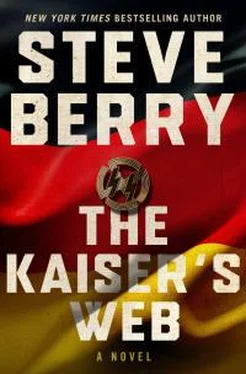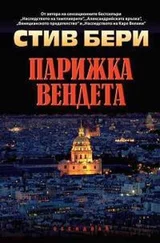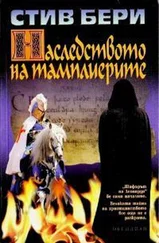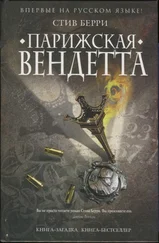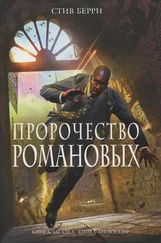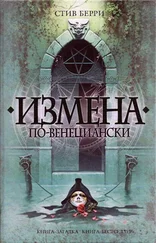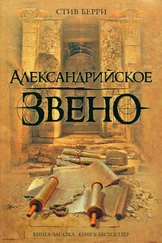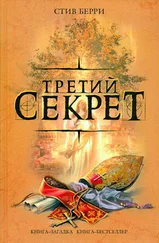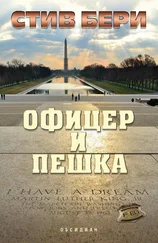The whole idea had seemed flawless.
Until last night.
Now he needed another path. “Can the Chinese effort be revived?”
Engle nodded. “It would be an easy matter.”
“Do it. No delay. I want a quick strike.”
“And what of Cassiopeia Vitt?”
“Eliminate her, too.”
“And Jan Bruin?”
“The same.”
“And Gerhard Schüb?”
He said nothing.
“And Cotton Malone?” Engle asked.
He understood. Too damn many killings. “All right, you made your point. Just Eisenhuth, for now. But the rest will have to be dealt with since they apparently are well informed, too. The critical thing is nothing gets traced back to us.”
“This information coming to light would be a problem,” Engle said. “Heirs of Bormann and Braun can be found. Bormann fathered many children, some of whom have children and grandchildren of their own. Braun’s family lineage can also be delineated. DNA testing is possible.”
“Not without my cooperation.”
“That could prove difficult to refuse. I agree, it would be better to eventually eliminate all of the participants. But those actions must be well planned.”
“Which is why I pay you large sums of money. Find a way.”
Something Eisenhuth said last night kept ringing through his brain. “We have the assistance of an American, Cotton Malone, who is working with Herr Schüb to secure some additional evidence.” And what had she said when asked of Schüb’s whereabouts? “Nearby.”
His mind raced.
He should have thought of it before. “We may have an easy opportunity to get Schüb and the American, Malone.”
He thought back years ago to when Gerhard Schüb traveled north from South Africa. By the late 1970s the old German was making the journey every few months, always bringing notebooks full of wisdom. He’d even come to like the wiry Schüb. They would meet, not in Germany, but just over the border in the Upper Bavarian reaches of Austria, at an elegant country house situated in a beautiful mountain valley.
“Malone and Schüb might be in Austria,” he declared.
“How can you be sure?”
“Just a feeling, but a good one I think.”
“What do you want me to do?”
“Have our Chinese friends check it out and, if I’m right, handle them. Now.”
CHAPTER SIXTY-SIX
SCHLÖSS HERZOG
11:00 A.M.
Marie was surprised that Kurt had returned home so soon. Usually after one of their tiffs he stayed away at least a week. This time he’d come back after only a few days. Perhaps their talk in Frankfurt the other night had some effect? She’d not heard a word from him since then, and his silence did not bode well. Though she should be preparing for the first debate with Pohl, reviewing reams of information her staff had assembled, her mind wandered. The tables were turned. Now Pohl was in jeopardy, too.
What would he do?
That was a question she needed answered. Unfortunately, she possessed precious little evidence other than what Gerhard Schüb had said and, as Pohl correctly noted, those statements came with an assortment of credibility problems. The BND inquiries about the tainted money had yet to become public. At the moment, though, she could not allow any of that to distract her. She needed to talk with Kurt. So she headed downstairs to find him immediately after the chambermaid informed her of his arrival.
He was in the Mirror Room, named appropriately for walls of baroque dotted with hundreds of mirrors, each casting fractured images at every conceivable angle. French doors and windows allowed the sun to play upon the reflections, the mirrors’ beveled edges splashing spectrums of color. She’d never cared for the room as the distorted refractions were, if nothing else, distracting, more irrational than beautiful, fantastical as opposed to real. Her father loved it, and while he was alive its furnishings had been elaborate and many. But she kept the space empty. More a curiosity than a functional part of the house.
She entered from the hall onto a lively terrazzo floor, whose pattern only added more confusion to the overall illusion.
“I am surprised you are back,” she said.
Kurt turned from one of the mirrors, an elegant one overlaid with a gilt trellis. He wore a three-button glen-plaid suit and Bally leather oxfords, a bit casual for his workday, which made her wonder where he’d been. “No sense fighting forever.”
He could be like that afterward, seemingly never holding a grudge, or at least not allowing her to think that he did.
“What did you learn at the company?”
“Not a hello or a how are you? Just, What did you learn? ” he said.
“I don’t mean to be short, but I am anxious to know what, if anything, appears in our records. Surely you can understand that?”
“Using our current unit of currency and value, a little over 370 million euros were transferred into our accounts since 1965. The amounts came in varying portions, scattered over time. The BND spent two days at our Frankfurt headquarters scouring records. Nothing would have raised any suspicions on our part since, as I have said, thousands of these transfers occur each year from banks all over the globe.”
“So Father would have known,” she said, more to herself than Kurt.
“Without question. In fact, nearly half the money arrived from 1965 until 1972. As you recall, that was a time when the companies suffered from inflation and the communists. It wasn’t until the early 1980s that things turned around.”
She’d heard that advertisement before.
Supposedly, Kurt had slaved for nearly a decade to counter her father’s protectionist policies. He would tell her how he consolidated and refinanced debt, renegotiated labor agreements, expanded markets, and basically saved them from the embarrassment of receivership. Erwin Brümmer never thought much of what Kurt may or may not have done. Most of the reversals, Brümmer explained, could be attributed to a skyrocketing economy that propelled West Germany into the industrial forefront. The Eisenhuth and Herzog entities were simply among the many conglomerates in the right place at the right time.
But she still wanted to know, “Did we benefit from the money?”
He nodded. “Those funds helped keep our concerns viable, functioning, and expanding.”
“Did you know where the money came from?”
“What if I did?”
She did not like his hedging. “How could you possibly ask such a question? To use assets derived from that evil is unspeakable. Go to Dachau, as I just did, see the ovens. To think I may have benefited, in any way, from that is repugnant to everything I believe. I thought it was repugnant to everything you believed, too.”
“And what is that supposed to mean?”
She repressed a shudder. “Damn you, Kurt. Did you know about the source of the funds?” Her words slipped out from between clenched teeth. “Stop the games.”
“ Ja, I did.”
Had she heard right?
She stood impassive, considering the admission. “That’s not what you told me in Frankfurt.”
“I lied.” He seemed not to care about the pain he was causing her.
Tears welled at the rims of her eyes. She fought the urge to cry. She must be strong, but everything she’d ever feared about Kurt seemed now confirmed. “What are you saying?” she asked, holding her emotions in check.
Kurt came close. “I am saying the obvious. The money was offered and I accepted it.”
“Who offered it?”
“That will hurt the most.”
She waited for him to explain.
“Your father.”
“What do you mean?” Her impassioned plea for understanding broke through a haze of shock.
“In the years before his death, he and I had many conversations. He told me of the funds, their source, and how to obtain them. I will say that I resisted the urge for a time, but finally succumbed. The money ultimately proved quite useful. Spent properly, the return has been substantial.”
Читать дальше
